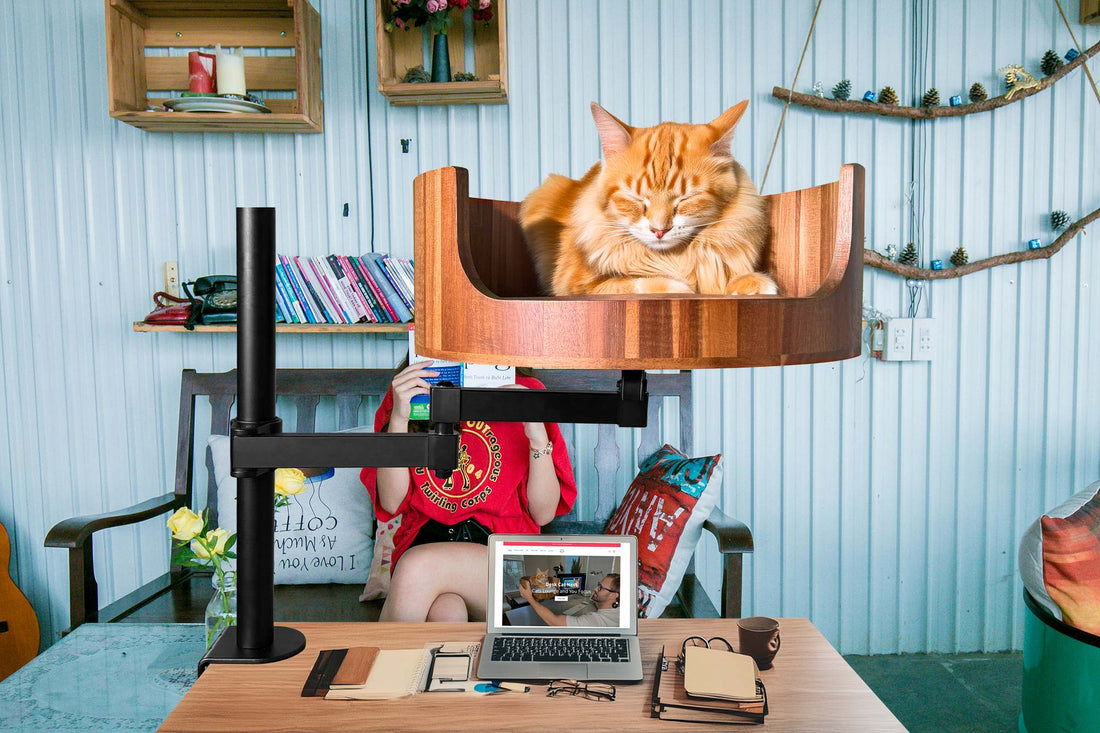
Why is my kitten eating her poop? Understanding the Behavior
Share
Have you ever caught your kitten eating her own poop and wondered why? You're not alone. This puzzling behavior, known as coprophagia, can be alarming for cat owners and often leads to questions about the health and well-being of their furry friend. In this article, we will delve into the reasons behind this behavior, debunk common myths, and provide tips on how to address it.
Understanding why kittens may engage in coprophagia is crucial for ensuring the health and happiness of your feline companion. From diet-related issues to stress and behavioral problems, there are various factors that can contribute to this behavior. By shedding light on the possible causes and solutions, cat owners can better navigate this challenging situation and provide their kittens with the care they need. Join us as we explore the complexities of coprophagia in kittens and learn how to address this behavior effectively.
1. Coprophagia, the act of eating feces, can be a common behavior in kittens and is usually due to their natural instinct to explore and learn about the world around them.
2. This behavior can also be related to a nutritional deficiency or health issue, so it is important to consult a veterinarian if you suspect your kitten is eating her poop.
3. Stress, boredom, or lack of stimulation can also contribute to coprophagia, so providing a stimulating environment and plenty of opportunities for play and exercise is essential.
4. Implementing litter box hygiene and cleanliness practices can help discourage the behavior and prevent potential health risks for your kitten.
5. With patience, consistent training, and proper veterinary guidance, you can address and potentially stop this behavior in your kitten.
Understanding Coprophagia in Kittens
One of the main reasons why kittens may eat their own feces is a behavior known as coprophagia. Coprophagia refers to the act of consuming feces, which can be seen in various animal species including dogs and cats. In kittens, this behavior may stem from various reasons such as hunger, habit, stress, boredom, or lack of proper nutrition.
Possible Health Issues
In some cases, kittens may eat their feces due to underlying health issues such as parasites, malabsorption disorders, or deficiencies in their diet. It is important to consult with a veterinarian if you suspect that your kitten's coprophagia is related to health issues. They can conduct tests and provide appropriate treatment to address any underlying problems.
Environmental Factors
Kittens may also eat their own feces as a response to environmental factors such as a dirty litter box, overcrowding, lack of stimulating activities, or feeling threatened by other pets in the household. Ensuring a clean and safe environment for your kitten can help reduce the likelihood of them engaging in coprophagia.
Behavioral Training and Prevention
To prevent your kitten from eating her own poop, you can implement behavioral training techniques such as positive reinforcement, providing a balanced diet, ensuring regular litter box cleanings, and engaging your kitten in play and exercise. Consistency and patience are key in addressing and correcting this behavior in kittens.
Desk Cat Nest FAQ
Why is my kitten eating her poop?
Kittens may eat their poop for a variety of reasons, including environmental stress, curiosity, or lack of nutrients in their diet. It is important to address this behavior promptly to ensure the health and well-being of your kitten.
Will the Desk Cat Nest help prevent my kitten from eating her poop?
The Desk Cat Nest can provide a safe and cozy environment for your kitten, which may help alleviate stress and reduce the likelihood of her eating her poop. Additionally, providing appropriate toys and enrichment activities can help distract your kitten from engaging in this behavior.
How can I discourage my kitten from eating her poop?
It is important to keep your kitten's litter box clean and provide her with a balanced diet to prevent nutritional deficiencies that may lead to coprophagia. Additionally, consulting with a veterinarian to rule out any underlying medical conditions is crucial in addressing this behavior.
Is the Desk Cat Nest easy to clean?
Yes, the Desk Cat Nest is designed for easy cleaning to maintain a sanitary environment for your kitten. Simply remove the removable cushion and wash it according to the manufacturer's instructions to keep the nest clean and fresh for your furry friend.
In conclusion, if you are concerned about your kitten eating her poop, investing in a Desk Cat Bed can provide a safe and comfortable space for your kitten to rest and play. The raised design of the bed can help prevent access to the litter box, reducing the temptation for your kitten to engage in this undesirable behavior. Additionally, the plush and cozy material of the bed offers a soothing environment that may help alleviate stress or anxiety that could be contributing to the issue. By choosing a Desk Cat Bed, you are not only addressing the problem at hand but also providing a beneficial and comfortable solution for your furry friend.



















































